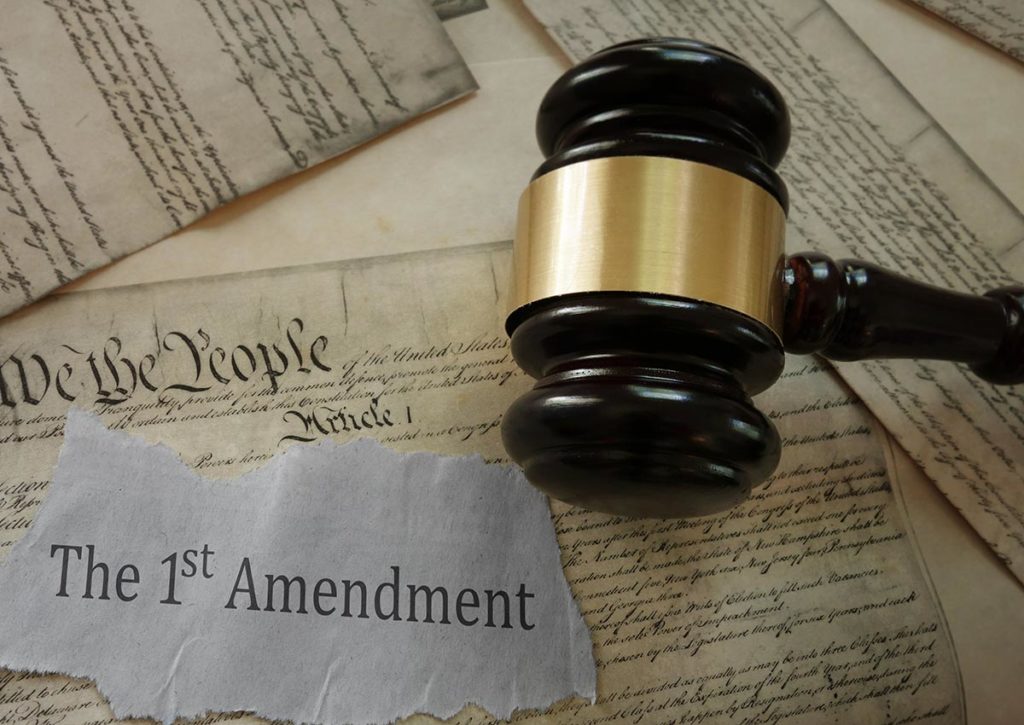Here’s what is wrong with Nikki Haley’s proposal to end online anonymity
This analysis is based on breaking news and has been updated. To connect with the author, please e-mail pr@rstreet.org.
Presidential candidate Nikki Haley recently received extensive backlash for a proposal that would force all online users to verify their identity on social media platforms before they can post content in order to protect national security.
People are rightly uncomfortable with this idea. The government using its expansive powers to force individuals to provide materials like government-issued IDs to private companies as a precondition of speech violates the First Amendment. Unfortunately, her proposal isn’t the first. Rather it is the culmination of a series of poor proposals in Congress and states around the country that aim to do the same.
During a forum, Haley said the second action she would take as president would be to ensure that “every person on social media should be verified by their name.” She explained that this would get rid of “the Russian bots, the Iranian bots, and the Chinese bots” in addition to increasing civility online because speakers would be known by name.
None of this is true. Haley’s proposal needlessly sacrifices our First Amendment rights and increases national security risks.
To begin, the First Amendment has long been understood to protect the right to speak anonymously. In one key 1958 case, the U.S. Supreme Court ruled that an Alabama statute which was used to force the National Association for the Advancement of Colored People to disclose names on membership lists to Alabama officials was unconstitutional. Decades later, Justice Clarence Thomas wrote in concurrence that “[a]fter reviewing the weight of the historical evidence, it seems that the Framers understood the First Amendment to protect an author’s right to express his thoughts on political candidates or issues in an anonymous fashion.” Courts have also understood this to extend to online speech.
From a normative standpoint, too, anonymous speech isn’t only protected, but desirable. Many commentators have pointed to the Federalist Papers as an important example of anonymous speech. But even in recent years, anonymous whistleblowers were forces of accountability in the #MeToo movement. As free-market technology experts have pointed out, “political dissidents and those of minority sexual, ethnic or cultural groups often benefit from anonymity online.” And, while Haley expressed concern that anonymous users are crueler when hidden—that’s not actually the case.
Even from a national security perspective, her proposal fails. Recently proposed legislation and laws across the United States would require all users to verify their age before accessing social media. While lawmakers have been struggling to minimize the amount of personal information necessary to verify age in these proposals, Haley’s proposal doesn’t even try. In order to verify one’s identity online, users may be forced to upload any combination of government ID, face scans, birth certificate, credit card, fingerprints or other materials to every social media platform before they are allowed to speak online. Many people would be unwilling to do so for a variety of reasons, which is an example of the “chilling effect” in which a law disincentivizes free speech. This can cause courts to rule a law unconstitutional. But more importantly in this case, this is a massive national security threat.
Companies of all kinds are constantly hacked by different malicious actors. A Duke University/CFO Magazine Global Business survey found that a whopping 80 percent of U.S. companies have experienced a successful hack where the hackers sought to “steal, change or make public important data.” According to the antivirus and security company Norton, more than half of all consumers have been a victim of cybercrime. And for those who think the solution is to run verification through the government, the numbers are not better for the government or its contractors. Hackers in Russia and China are a real part of this problem, attacking telecommunications firms and hospitals. While Americans are struggling with fake bank accounts being opened in their name, Haley’s proposal creates a fruitful target for the kind of information that would aid hackers in their fraud.
In a similar vein, Haley should also review a recent Pew Research Center report revealing that more than 70 percent of American adults are concerned about how the government and private companies use the data that is collected about them. Under her proposal, online users would be required to provide even more data, and since the United States lacks a federal privacy law, the safeguards around that information are only as strong as each company wants them to be. At a time when lawmakers would be wise to encourage data minimization, her proposal does the opposite.
Key to all of this is that Haley’s proposal mirrors multiple bills in the Senate, from the Kids Online Safety Act or Protecting Kids on Social Media Act, to new laws in Utah and Arkansas. These proposals and laws require users to verify their ages online before they can use social media. Although they differ from Haley’s proposal in that they seek to protect children and verify age and not identity, these proposals would function very similarly. Verifying user age would require the same kinds of measures as verifying user identity—especially where parental consent is needed for minors to use social media, in which case the parent and child would have to prove their relationship.
Ultimately, having the government force users to verify their identities is a barrier to free speech and causes manifest security problems. It rightly deserves scorn. Those outraged at Haley’s comments, however, would do well to look at how Congress and the states are already violating our rights at this very moment.



